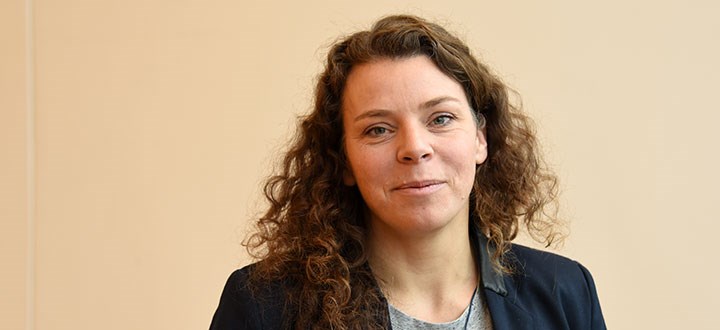Efforts for a stimulating working environment to attract international researchers to Örebro

Project manager Maria Wennerstrand, HR strategist at Örebro University.
As the third higher education institution in the country, Örebro University was at the end of 2018 recognised by the European Commission and its “HR Excellence in Research” award for their commitment to good working conditions and transparency in the recruitment of researchers and faculty. The university is now taking the next step in the process by revising its action plan.
“Örebro University endeavours to consolidate its position as an engaging employer to attract research talent from all over the world. We are therefore working systematically to improve and quality-assure working conditions and career opportunities for research staff,” says project manager Maria Wennerstrand, HR strategist at Örebro University.
The “HR Excellence in Research” award gives recognition to organisations that have made progress in aligning their human resources policies with the principles set out in the European Charter for Researchers and the Code of Conduct for the Recruitment of Researchers, also known as the European Charter and Code, which lay down rights and obligations and provide guidelines for the recruitment of researchers. Efforts were taken to identify how well the university’s approach and procedures corresponded to this common European Charter and Code.
“Once we had done a comparison, we prepared an action plan to adapt our activities to the European Charter and Code in the best way possible.”
Now, Örebro University has entered the next phase which involves revising the action plan and undertaking a self-assessment of how well the university complies with the action plan submitted two years ago. The new action plan will be submitted today and will be reviewed by an external expert appointed by the European Commission.
“The work we are doing is an essential part of the university’s internationalisation efforts,” says Maria Wennerstrand.
One effect is that the administrative support functions have been brought closer together. All activities that support mobility and good working conditions for researchers have been included in the plan.
“We have undertaken extensive analysis work to ensure that information about the support services offered to researchers by the university is compiled and communicated clearly. Simply to provide researchers with quick and easy access to the support available to them and their research teams,” says Maria Wennerstrand.
“For example, we have identified the need for more and better information on our English website, and improvement efforts are now underway. We have also brought those working in HR and internationalisation closer together, which is an important step in building consensus on the value of mobility among researchers, both incoming and outgoing,” says Maria Wennerstrand.
The “HR Excellence in Research” award is not a certification that guarantees a certain level of quality. Rather, it is an indication of the university’s high ambition to comply with the European Charter and Code. With these efforts, Örebro University has taken another significant step towards that goal.
